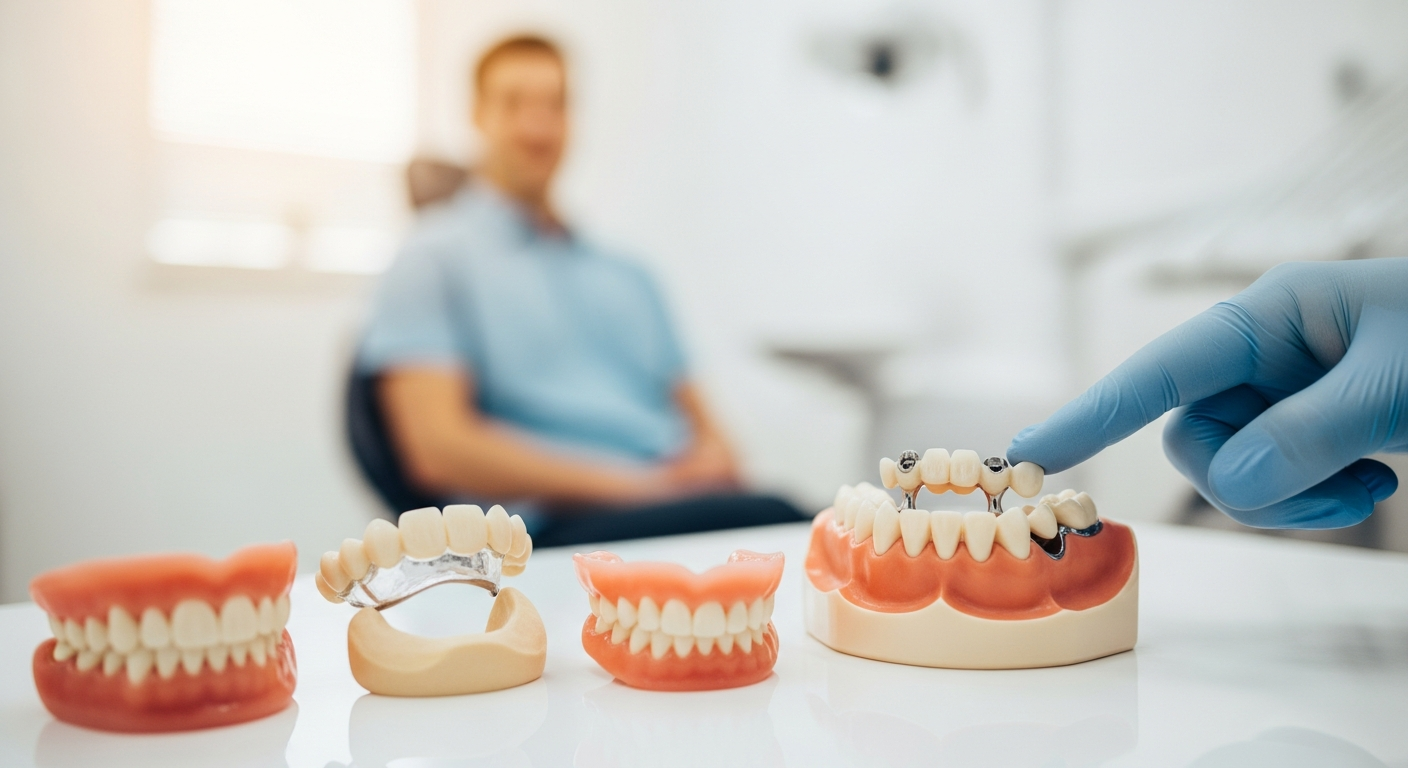Addressing Tooth Loss in Older Individuals
Tooth loss is a common concern among older adults, often impacting not just their ability to eat and speak comfortably but also their overall quality of life and self-confidence. Fortunately, advancements in dental technology have introduced highly effective and durable solutions. Modern dental implants offer a significant improvement over traditional options, providing a stable and long-lasting way to restore missing teeth and improve oral health for seniors.

This article is for informational purposes only and should not be considered medical advice. Please consult a qualified healthcare professional for personalized guidance and treatment.
Understanding Dental Implants for Older Adults
Dental implants represent a sophisticated solution for replacing missing teeth, consisting of small, screw-shaped posts typically made of titanium. These posts are surgically placed into the jawbone, acting as artificial tooth roots. For older individuals, dental implants offer a crucial advantage by providing a stable foundation for replacement teeth, which can range from single crowns to bridges or even full dentures. Unlike conventional dentures that rest on the gums and can shift, implants integrate with the bone, offering unparalleled stability and comfort.
The Functionality and Benefits of Modern Implants
The primary mechanism behind dental implants is osseointegration, a biological process where the titanium implant fuses directly with the jawbone. This creates a strong, durable anchor for the prosthetic tooth. The benefits for seniors are extensive: improved chewing efficiency allows for a more varied and nutritious diet, enhancing overall health. Clearer speech, a more natural appearance, and increased self-esteem are also significant advantages. Furthermore, implants help preserve the jawbone, preventing the bone loss that often occurs after tooth extraction, which can maintain facial structure and prevent a sunken appearance.
Types of Dental Implants Available Today
Contemporary dentistry offers several types of dental implants tailored to individual needs and bone conditions. Endosteal implants, the most common type, are surgically placed directly into the jawbone. Subperiosteal implants, which rest on top of the jawbone but under the gum tissue, are less frequently used today but can be an option for individuals with insufficient bone height. Advanced solutions like All-on-4 or All-on-6 involve placing a minimal number of implants to support a full arch of teeth, making them suitable for seniors with significant tooth loss or those seeking a fixed alternative to traditional dentures. The choice depends on factors like bone density, the number of missing teeth, and overall oral health.
The Dental Implant Procedure: What to Expect
The journey to receiving dental implants typically begins with a comprehensive dental examination, including X-rays and 3D imaging, to assess bone structure and plan the implant placement. The first surgical step involves placing the titanium implant into the jawbone. A healing period, often several months, allows for osseointegration to occur. Once the implant has fused with the bone, an abutment, a small connector post, is attached to the implant. Finally, a custom-made crown, bridge, or denture is securely affixed to the abutment, completing the restoration. The entire process is personalized, ensuring optimal results for each patient.
Cost Considerations for Dental Implants in India
The cost of dental implants in India can vary significantly based on several factors, including the type of implant, the number of implants required, the need for supplementary procedures like bone grafting or sinus lifts, the specific dental clinic’s location, and the experience of the dental professional. While implants represent an investment, their long-term durability and benefits often outweigh the initial cost compared to repeated replacements of less permanent solutions.
| Product/Service | Provider Type | Cost Estimation (INR) |
|---|---|---|
| Single Dental Implant | General Dental Clinic | 25,000 - 45,000 |
| Single Dental Implant | Specialist Clinic/Hospital | 40,000 - 70,000 |
| All-on-4 Implants | Specialist Clinic | 1,50,000 - 3,50,000 |
| Bone Grafting (per site) | General Dental Clinic | 10,000 - 25,000 |
| Sinus Lift (per side) | Specialist Clinic | 20,000 - 50,000 |
Prices, rates, or cost estimates mentioned in this article are based on the latest available information but may change over time. Independent research is advised before making financial decisions.
In conclusion, dental implants offer a transformative solution for older individuals experiencing tooth loss, providing a robust and aesthetically pleasing alternative to traditional dentures. By restoring essential oral functions and enhancing appearance, modern dental implants contribute significantly to an improved quality of life, allowing seniors to enjoy their golden years with greater comfort and confidence.




